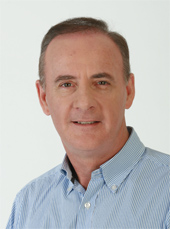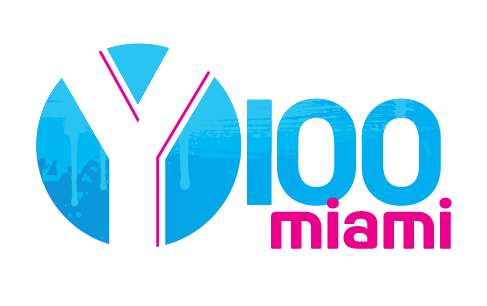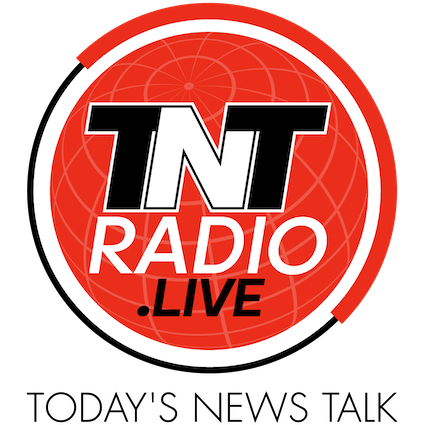Expat Files : Michael Pearson Adams

Michael ‘Gomez’ Adams is an expat radio pro who has crafted an extraordinary career in sound and digital audio production in the US.
I personally enjoy reading and being inspired by other people’s success stories and I’m sure Michael’s journey from 4BK in Brisbane, to present will inspire and give hope to many of you looking to re-align your career trajectory.
I had the chance recently to chat with Gomez and reminisce over all the stations we’d worked together at. I started by asking about his radio journey that started over 20 years ago.
Take note of the tips and wisdom Michael gives at the end of this article.
Michael: I started in radio at 4BK in Brissy in 1988 or 89. It's a blur. I stayed there til after we converted to B105. The team spirit when we built B105 was amazing, and I have many happy memories and made some lifelong friends.
I consider myself blessed to have been in the radio industry at the tail end of things like Friday afternoon survey results, which turned into a party regardless of win or loss. Surveys weren't as frequent, and everyone held their breath. But it was also the time where the winners and losers were a lot more clean cut. First survey at B105 kicking FM104's arse was….well it was awesome.
I then moved to Coast Rock FM in Gosford before heading to work in production at the M's in Sydney in 1993. Working there was one of the hardest and best production experiences I had, and helped set me up for the music world. Again it was a family and we worked and played like one.
After the M's I went to KROQ on the Gold Coast, which then saw me moving to Sea FM, and from there to MCM in Melbourne doing Party Hard, Planet Rock etc for a couple of years with the late Mr Peter Harry who I miss a lot.
 I took a break from radio to mix the first singles for a band I created in Cairns with biz partner Reno Nicastro, called Shakaya and had some good success with them. Then I went back to my last gig in radio before my brother and I started our own business which was national production manager for RG Capital Radio working alongside programming guru Rod Brice (right). Working with Rod taught me a lot about programming.
I took a break from radio to mix the first singles for a band I created in Cairns with biz partner Reno Nicastro, called Shakaya and had some good success with them. Then I went back to my last gig in radio before my brother and I started our own business which was national production manager for RG Capital Radio working alongside programming guru Rod Brice (right). Working with Rod taught me a lot about programming.
The business my brother and I started turned into a monster very quickly and we started our main product in Australia first as the Triple M Freq Club, a loyalty program for radio listeners. That's what moved me to the States. With investment money, we bought out Fairwest in San Diego, and moved our base of operations there in 2004.
I've been here in the USA ever since.
When we got here, I was spending a lot of time with the Clear Channel radio network and also Cumulus as we had loyalty programs everywhere from KIIS in LA to Z100 in New York. Exciting times.
When we closed shop, and my brother went home, I decided to stay and push forward into the music world as I'd already taken those steps in Australia.
First year after Fairwest I was working with Scott Stapp from Creed and then working with Creed on the beginnings of a reformation. That grew into steady studio work with everyone from Gloria Estefan to Lenny Kravitz, either working in the studio or consulting on the studio itself and the sound out of it with the producers and engineers.
And here I am still.
Daryl: What do you love about radio?
Michael: I love the fact that radio still exists and hasn’t been killed by satellite radio. I still listen to Aussie stations online but mostly US stations as I travel a great deal around the country. Radio is where producers are born, but also where stars in other areas are born too. It’s where creativity has a chance to grow and blossom. The A list of songs still kills me. Hearing Maroon 5 every ten minutes can drive anyone nuts.
Daryl: You live primarily in the States now, do you still listen to radio production ‘on air’ like you used to?
Michael: YES. Absolutely. I just did a drive from San Diego CA to Miami FL over three days, and was tuning in to all the local stations. I don’t listen for quality so much anymore. I listen for potential and ideas. The smaller stations have no budget but some of those guys working in a Cool Edit Pro system come up with some great ideas. Anyone can stick an explosion in there. I listen for the creativity that comes from not having any other option, than raw creativity. And it makes me smile.
Daryl: What is your favourite station in the US?
 Michael: Doesn’t exist anymore. It was Star FM in San Diego when Tracy Johnson was PD. I helped re-launch it as Jack FM in 2004/05 which was an amazing experience. I love the Jack FM format (when it’s done well) Star FM still holds a place in my heart. Favourite local station to where I live would be – Y100, Miami Florida.
Michael: Doesn’t exist anymore. It was Star FM in San Diego when Tracy Johnson was PD. I helped re-launch it as Jack FM in 2004/05 which was an amazing experience. I love the Jack FM format (when it’s done well) Star FM still holds a place in my heart. Favourite local station to where I live would be – Y100, Miami Florida.
Daryl: You’ve spent a lot of time teaching audio people about audio software, what is the main challenge you see audio people (particularly radio production people) have in the modern audio studio?
Michael: It’s easy to be overwhelmed with the amount of gear that some of these guys and girls have at their disposal. Even in Pro Tools now, after having PT version 11 released recently, there’s so much in there now that makes life easier that I am finding that creativity sometimes takes a backseat unintentionally.
Daryl: What bad skills have developed?
Michael: I find that too many producers edit with their eyes, and not their ears. You all know what a breath looks like so you edit it out without even pressing play sometimes, and that drives me nuts.
When I’m training I still randomly stick a magazine over the screen, or just turn the damn thing off and ask “how does it REALLY sound?” Visual editing is great, but …and I’m going to sound old to some now I’m sure…..having an analog background or even some knowledge of mixing on tape, sets you up better for the digital realm. Blackbird Studios in Nashville have just poached a mate of mine who used to run Conservatory of Recording Arts in Arizona. His MAIN thing is making sure everyone who goes through there knows how to mix on a 24 track, and I really wish everyone did in radio too.
Daryl: What great skills have emerged?
Michael: Plugins, the software version of hardware racks, have started to create some great new skill sets. I’m hearing a lot of people really think outside the box and put plugins with one supposed application to a completely different use with amazing results. I LOVE hearing promos and songs alike that have that kind of application put to use. Plugins really have become the new effect, by intentionally “breaking” it to get a result that one might not expect. Creativity is alive and well!
Daryl: You’ve had a remarkable career. You’ve done what many dream about, in moving to another country and succeeding in audio. What success tips can you pass on to the person sitting in a production studio here in OZ?
Michael: First thing is to never assume that your experience in Australia means squat in the States. It usually means exactly that. Squat. Be prepared to knock on doors, pretty much starting again, be VERY prepared to take what you might consider a step down the ladder you've worked so hard to climb to get a foothold over here and learn to really blow your own horn. That’s something I had to learn really fast over here. How to tell people how good I am. Even sounding like a complete egotistical wanker, I’m still telling the world how good I am because that’s the way to get noticed. Makes you feel a bit silly sometimes as I said but there it is. Welcome to the States.
Second thing is to really believe in yourself, and stick to your guns, and never stop. If you stop hassling and knocking down doors over here, you disappear. There are thousands of people ready to step in and take a gig from you if you’re not there or standing up to the plate.
One of the biggest things I found was that I can be kinda blunt, and in a country that is very politically correct, I managed to get attention by telling people they’re crap when they’re crap and not beating around the bush, BUT making sure that I have a solution to back it up with.
In the music world if the artist doesn’t like you, you’re gone quicker than you know, and artists and studios all talk.
Mostly you have to work extra hard over here to keep it all moving. It’s totally possible, I’m not the only one that’s done it. It isn’t easy though, and it’s a heck of a lot of work. BUT I believe it’s worth it. It’s helped me grow as a person and professionally.
I hope that helps. I'm always happy to answer questions on it though. My mate Troy Hazard and I are in the middle of writing a book on the subject of Aussies surviving in the States.
Go Miami Heat 🙂
Michael Pearson Adams
Producer, Engineer, Aussie
about.me/michaelpa
www.michaelpa.com
Michael also has his own photography business. See here.

